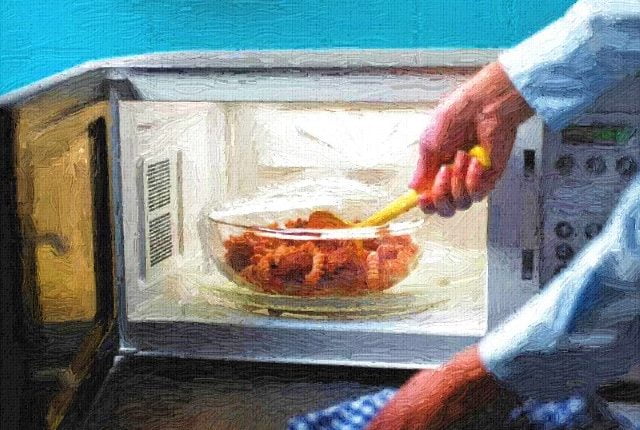Ill-Effects Of Reheating: Know The Food Items That Lose Nutrition

Potato is a great source of Vitamin C but loses its quality if reheated.
Due to a hectic lifestyle, it has become a regular routine for many to take out food from the fridge and heat it – for breakfast, lunch or dinner.
Beware! This process not only reduces the nutritional value, it helps in bacterial growth, loss of flavour, nutrients and texture. Be informed that we might lose some nutrients when it is cooked for the first time – storage and reheating further diminishes the nutrients.
The water soluble vitamins C & B are the main victims when food contains these vitamins – where we lose out more. Thus it is advised to discard these foods rather than having dead food. It is advisable to have fresh-cooked food, have the stove ready and the container which can give you hot steaming food or learn to have Mediterranean diet – salads and cold meat.
1. Cruciferous vegetables — Cauliflower, cabbage, kale, bok choy, broccoli, Brussels sprouts and similar green leafy vegetables contain water-soluble Vitamin C which loses quite a bit of nutritional value when cooked, especially cauliflower, cabbage and broccoli. These vegetables lose quite a bit of folate when they are reheated. Folate helps the body to build RBC (red blood cells) and is responsible for reducing the risk of neural tube defects in unborn babies. Folate is very sensitive to heat and gets destroyed when reheated.
2. Potato and tuber vegetables — Potatoes and other tubers & spuds cooked in a logical and step process are always delicious. Tubers are high in Vitamin C. A 5.2-ounce potato (white or red) provides about 27 mg of vitamin C – which is 42% of RDA, qualifying it as an ‘excellent’ source of the vitamin. A sweet potato gives 3.2 mg of Vitamin C – which is 5% of RDA. Thus, just like cruciferous vegetables, we lose nutritional values when recooking it.
3. Eggs — Taste pretty good without being reheated – especially the hard-boiled ones. We understand that some prefer their food to be warm, but eggs really shouldn’t be part of that practice. Microwaving a hard-boiled egg may lead to explosion – so avoid it. Home cooking tends to reduce the antioxidant activity of eggs. It follows, then, that reheating food will likely compound that effect. Antioxidants are found in eggs yolks, good for the health of our eyes ― lutein and zeaxanthin, which protect the eyes from harmful sunlight and significantly reduce the risk of macular degeneration and cataracts.
4. Vegetables high in nitrates: Celery, beet, carrot and any sort of leafy green are high in nitrates, chemicals that are interestingly both beneficial and dangerous to our health. Foods with nitrates cooked at high heat can turn them into nitrosamines, which are known carcinogens. It follows, then, that reheating veggies must be done with a lot of caution. These foods should be consumed raw or cook them only once at a medium level or blanch them.
5. Vegetable oil — A category of products that includes olive oil, avocado oil, soybean oil and more, contains unsaturated fats. When these oils are exposed to heat and allowed to cool multiple times, these heart-healthy fats begin to form different bonds and can translate into fatty acids, which increase inflammation in the body. An example to keep in mind — fast-food joints that constantly fry their foods in the same bucket of oil, without changing it, are probably serving you less-than-healthy fare. While reusing vegetable oil may seem like an economical idea, exposing it to heat multiple times can cause inflammation and danger to your body. A note about butter — although it’s not a vegetable oil, it is also a liquid fat whose chemical composition changes upon reheating and therefore leads to the production of Trans fats. So if you are using butter to fry your food, be sure to invest in a fresh stick of it.
6. Fish — If you eat fish to compensate for anaemia or a B6 deficiency, take heed. Fish, particularly Yellow Fin Tuna and Salmon, contain pyridoxine (also known as B6), which is used to treat a certain type of anaemia and B6 deficiency. But pyridoxine is very sensitive to heat, and when the fish loses its water content upon reheating, pyridoxine is further leached out of the fish.

Comments are closed.